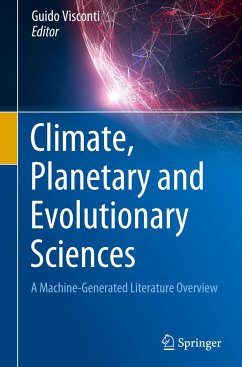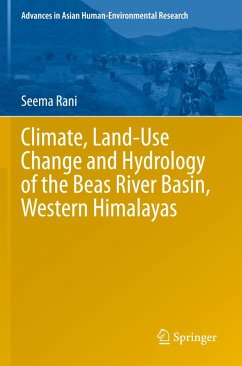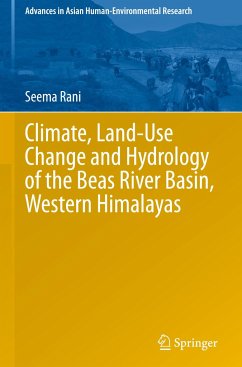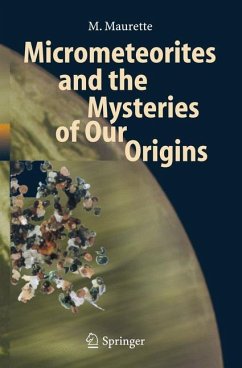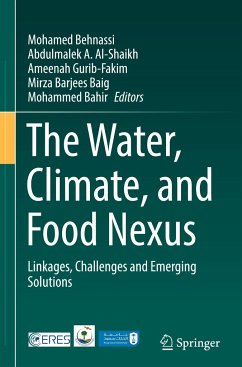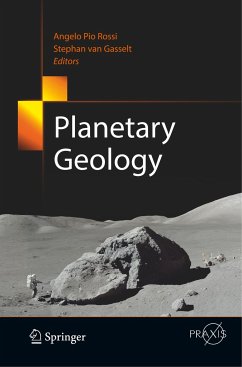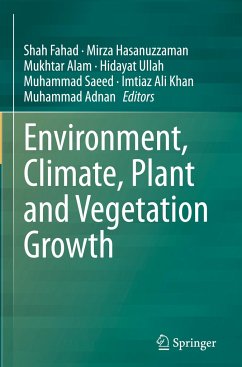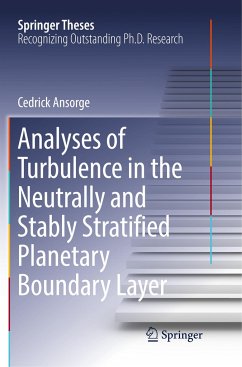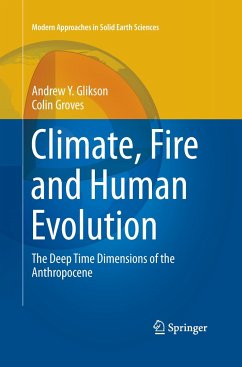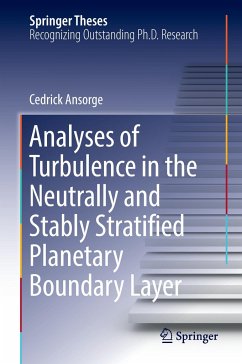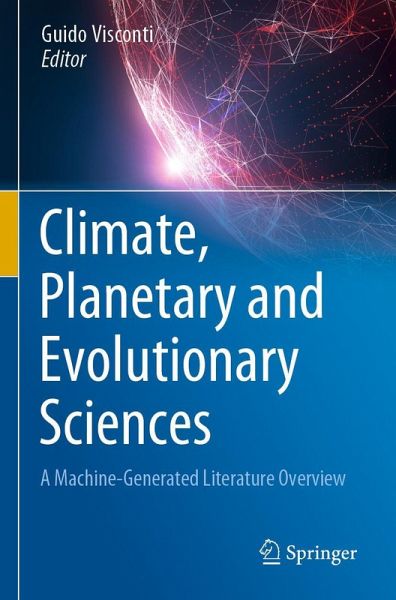
Climate, Planetary and Evolutionary Sciences
A Machine-Generated Literature Overview
Herausgegeben: Visconti, Guido
Versandkostenfrei!
Versandfertig in 6-10 Tagen
98,99 €
inkl. MwSt.

PAYBACK Punkte
49 °P sammeln!
This book presents the result of an innovative challenge, to create a systematic literature overview driven by machine-generated content. Questions and related keywords were prepared for the machine to query, discover, collate and structure by Artificial Intelligence (AI) clustering. The AI-based approach seemed especially suitable to provide an innovative perspective as the topics are indeed both complex, interdisciplinary and multidisciplinary, for example, climate, planetary and evolution sciences. Springer Nature has published much on these topics in its journals over the years, so the cha...
This book presents the result of an innovative challenge, to create a systematic literature overview driven by machine-generated content. Questions and related keywords were prepared for the machine to query, discover, collate and structure by Artificial Intelligence (AI) clustering. The AI-based approach seemed especially suitable to provide an innovative perspective as the topics are indeed both complex, interdisciplinary and multidisciplinary, for example, climate, planetary and evolution sciences. Springer Nature has published much on these topics in its journals over the years, so the challenge was for the machine to identify the most relevant content and present it in a structured way that the reader would find useful. The automatically generated literature summaries in this book are intended as a springboard to further discoverability. They are particularly useful to readers with limited time, looking to learn more about the subject quickly and especially if they are new to the topics. Springer Nature seeks to support anyone who needs a fast and effective start in their content discovery journey, from the undergraduate student exploring interdisciplinary content, to Master- or PhD-thesis developing research questions, to the practitioner seeking support materials, this book can serve as an inspiration, to name a few examples.
It is important to us as a publisher to make the advances in technology easily accessible to our authors and find new ways of AI-based author services that allow human-machine interaction to generate readable, usable, collated, research content.
It is important to us as a publisher to make the advances in technology easily accessible to our authors and find new ways of AI-based author services that allow human-machine interaction to generate readable, usable, collated, research content.





